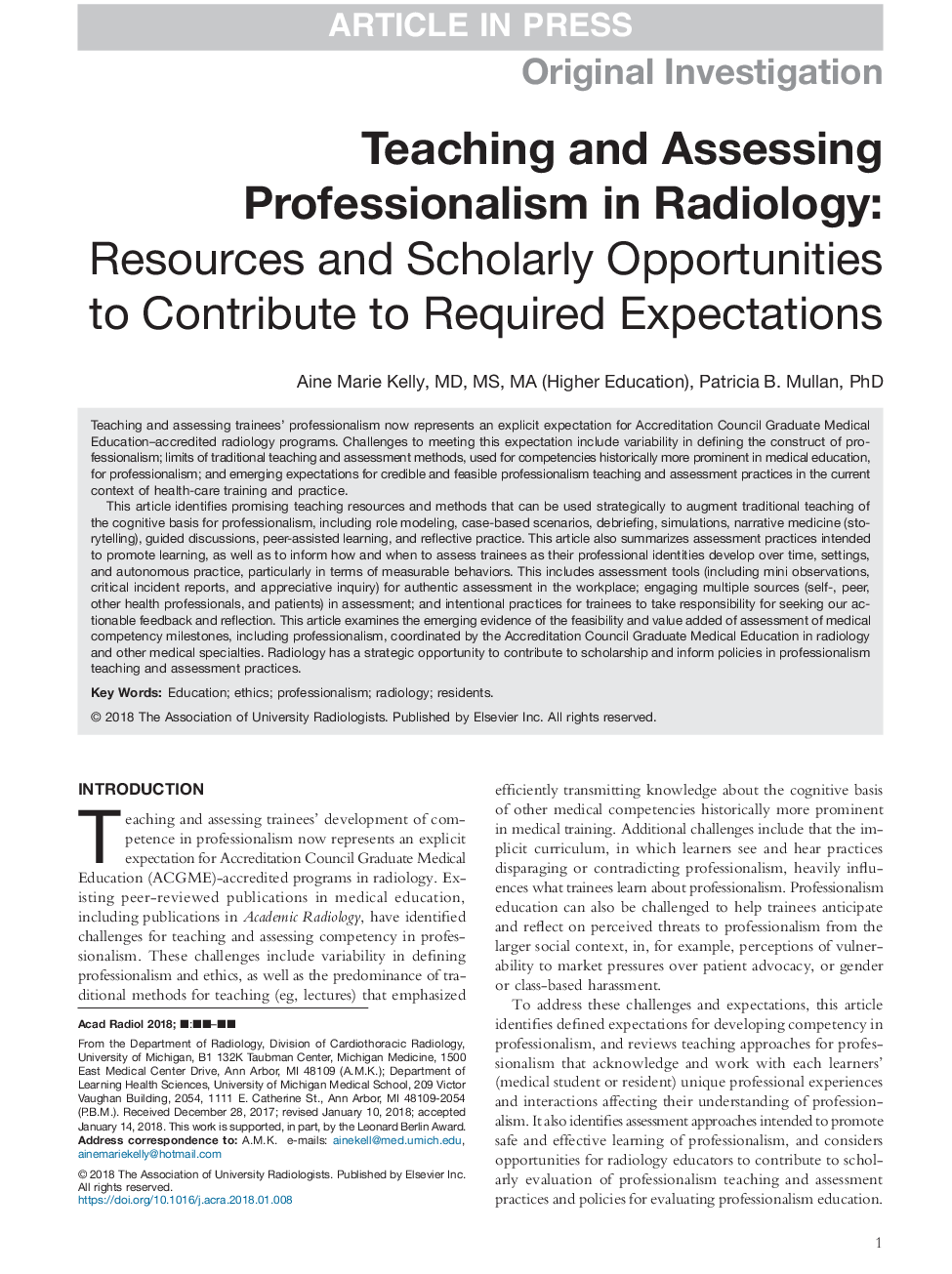| Article ID | Journal | Published Year | Pages | File Type |
|---|---|---|---|---|
| 8820936 | Academic Radiology | 2018 | 11 Pages |
Abstract
This article identifies promising teaching resources and methods that can be used strategically to augment traditional teaching of the cognitive basis for professionalism, including role modeling, case-based scenarios, debriefing, simulations, narrative medicine (storytelling), guided discussions, peer-assisted learning, and reflective practice. This article also summarizes assessment practices intended to promote learning, as well as to inform how and when to assess trainees as their professional identities develop over time, settings, and autonomous practice, particularly in terms of measurable behaviors. This includes assessment tools (including mini observations, critical incident reports, and appreciative inquiry) for authentic assessment in the workplace; engaging multiple sources (self-, peer, other health professionals, and patients) in assessment; and intentional practices for trainees to take responsibility for seeking our actionable feedback and reflection. This article examines the emerging evidence of the feasibility and value added of assessment of medical competency milestones, including professionalism, coordinated by the Accreditation Council Graduate Medical Education in radiology and other medical specialties. Radiology has a strategic opportunity to contribute to scholarship and inform policies in professionalism teaching and assessment practices.
Related Topics
Health Sciences
Medicine and Dentistry
Radiology and Imaging
Authors
Aine Marie MD, MS, MA (Higher Education), Patricia B. PhD,
